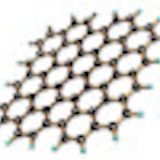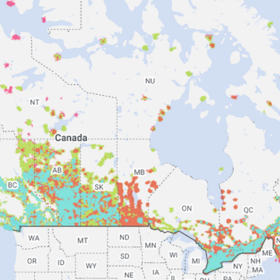
Researchers at the Centre of Graphene Science at the Universities of Bath and Exeter have demonstrated a drastic improvement in optical-fibre broadband speeds via the use of the miracle material: graphene.
It’s often stated that optical fibre broadband transfers data at ‘the speed of light’, utilizing infra-red spectrum light-waves to differentiate between 1’ and 0’s. While it’s essentially true that part of the process operates very close to the universe’s speed limit, our ability to interpret and retransmit data at each end of the cable is a serious bottleneck. Current optical switches operate at a few picoseconds – roughly a trillionth of a second.
A trillionth of a second is pretty quick, but so is a femtosecond is, which is a measurement 1000x faster and required to measure data speeds on graphene switches. Using graphene in networking, researchers are seeing speeds 100x faster than previously recorded.
What is graphene?
Graphene is the single most incredible material ever discovered by science. It’s bendable, potentially transparent, is the strongest, thinnest, most electrically conductive, and most thermally conductive thing you’ve never heard of. It’s also made from pure carbon, meaning it’s biodegradable, and you can purify water of any toxin or pollutant just by filtering it through a sheet.
- Thin: it can be as few as one carbon atom thin. That is literally as thin as you can make something made out of carbon. You could make something with 1 million layers of complexity and have it measure no more than 1mm.
- Superman strong: it’s also over 100x stronger than steel. Some estimates say that you could balance an elephant on a pencil and not have it break through a single 1 atom sheet.
- Conductive: It’s over 100x more thermally and electrically conductive than any other material. This gives it great potential, as it passes charges incredibly quickly and can gather heat with unprecedented efficiency.
- Cheap as chips: It’s made from carbon. That stuff is everywhere.
Does this outdate fibreoptic technology?
No. This research actually improves on current fibreoptic broadband without the need to replace anything but the switches at each end of the cable. You thought fibre broadband was going to be fast? Just wait a couple of decades for the graphene revolution.
Viva la graphene.
Related Articles
Find Better Phones and Plans
Hundreds of cell phone plans unpacked. All the facts. No surprises.



































